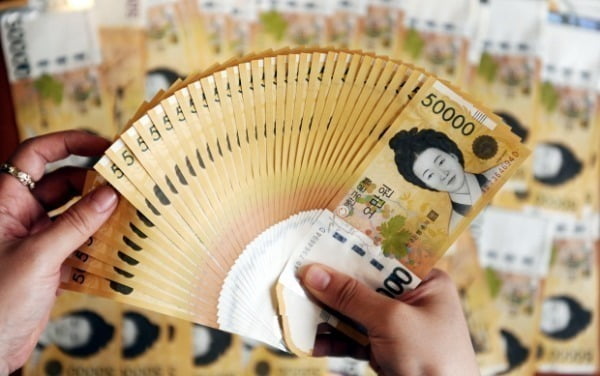
Hankyung DB
It was found that there were more than 850,000 earned income earned in Korea last year. It is 4.4% of all office workers, an increase of 50,000 (6.2%) compared to 2018. Compared to 2014, it increased more than 62%.
The number of those who exceeded 500 million won in financial income such as interest and dividends was also counted to 4,800, an increase of 5.6% from a year ago. On the 29th, the National Tax Service released the ‘2020 National Tax Statistical Yearbook’.

62% increase in 5 years
The total number of earned income earned by reporting the year-end settlement last year was 19.17 million, an increase of 3.1% (59 million) from a year ago. Among them, the total salary of salary exceeding 100 million won was 852,000, accounting for 4.4% of the total. An increase of 50,000 people from 2018, which was 802,000 people.
An official from the National Tax Service explained, “Because non-taxable income such as food expenses is not included in the gross salary, the actual rate of annual salaries is higher.”
The number of earned income earners with total wages exceeding 100 million won is increasing year by year. The number of annual salaries in the billions from 525,000 in 2014 increased to 596,000 in 2015, 653,000 in 2016, and 719,000 in 2017. This is a 62.3% increase in the number of billionaires in five years.
The average annual salary of earned income earners last year was estimated to be 37,000 won, an increase of 2.7% from the previous year. The average annual salary is also steadily increasing from 32.4 million won in 2015 to 33.6 million won in 2016, 35.19 million won in 2017, and 3647 million won in 2018.
Proportion of earned income earners who did not pay taxes 48% for 5 years→ 36%

Salaries for daily workers have decreased. The average annual income of daily workers in the construction and manufacturing industries was 807 million won, a decrease of 4.9% (20,000 won) from 2018.
The number of duty-free workers who have not paid a penny has declined. The number of workers who did not meet the taxation criteria and did not have a determined tax amount was 7.75 million, accounting for 36.8% of the total. Compared to 2018, which was 38.9%, it decreased by 2.1 percentage points. The number of duty-free workers has steadily declined after peaking at 48.1% in 2014.
Last year, the number of reports of capital gains tax was 992,000, down 4.6% from a year ago. During the same period, the average price of a house sold was 348 million won, up 2.3%.
House prices in Seoul amounted to 738 million won, more than twice that of Gyeonggi-do (320 million won), the second place. The transfer price of housing in Jeonnam (129 million won), Gyeongbuk (126 million won) and Gangwon (124 million won) was low.
The number of people who paid the comprehensive real estate tax last year was 592,000, an increase of 27.7% from a year ago. The amount of tax determined by the stipulation tax increased 60.2% to 3,72 trillion won. The number of people who decided the tax for housing tax was 517,000, up 31.5% from a year ago. Seoul accounted for 57.1% of the total housing tax payers. Gyeonggi Province accounted for 22.6%, with the metropolitan area accounting for 81.8% of the total.
There were 7.75 million people who filed comprehensive income tax, with a total of 34,893.3 billion won. The number of people subject to comprehensive financial income taxation whose financial income exceeded 20 million won was 159,000, up 23.6% from the previous year (129,000). The number of high income earners with financial income exceeding 500 million won increased 5.6% to 4810. Their average comprehensive income was 2.9 billion won, up 4.4% from a year ago.
Reporter Jeong In-seol [email protected]
